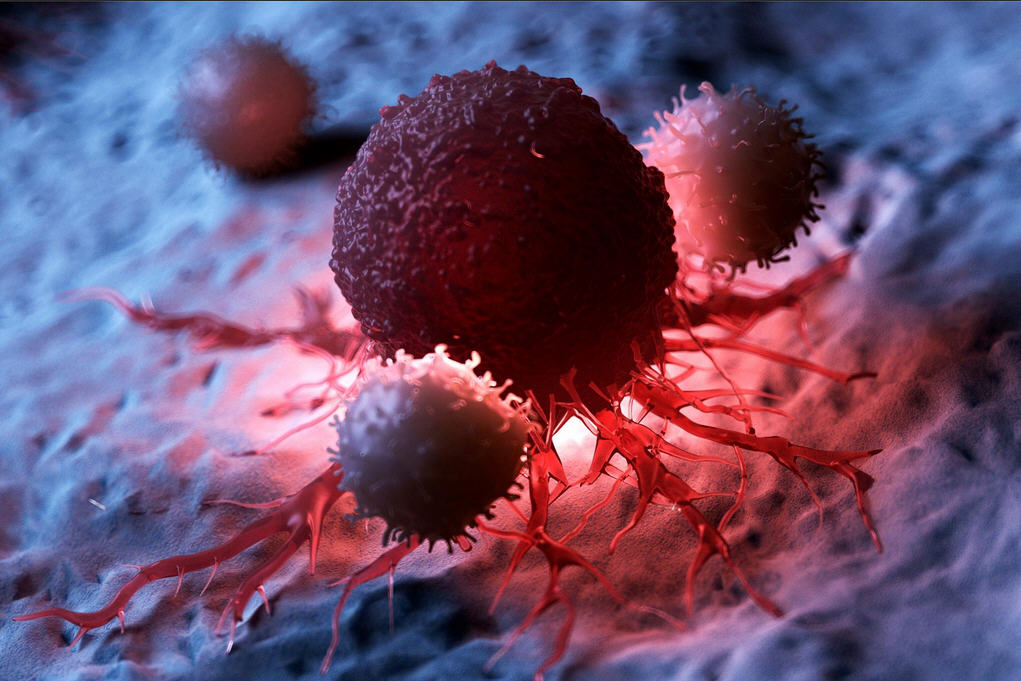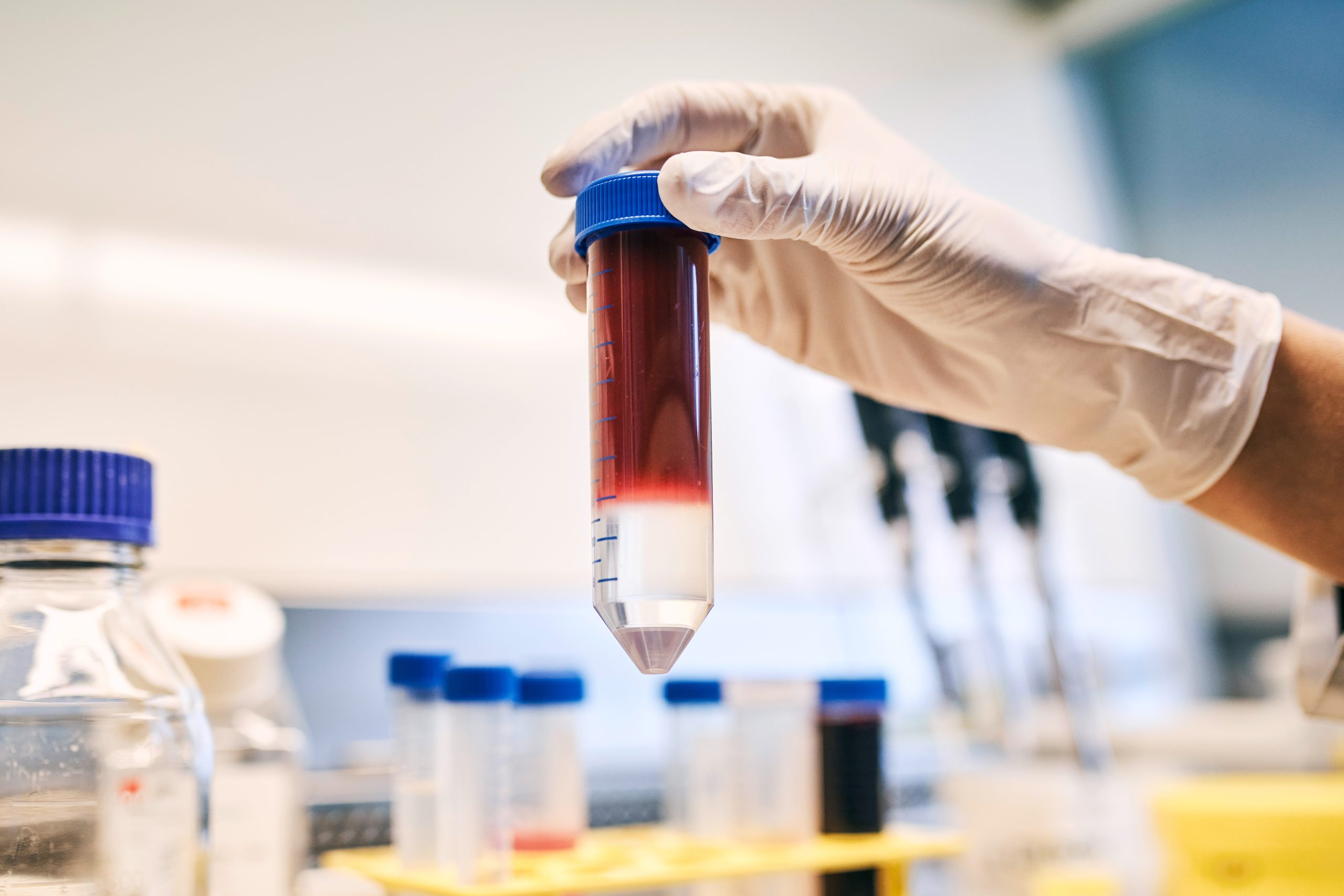 精选
精选
惊喜发现:科学家发现盐的抗癌潜力
诸平
据德国莱布尼茨天然产物研究和感染生物学研究所-汉斯·诺尔研究所(Leibniz Institute for Natural Product Research and Infection Biology - Hans Knöll Institute简称Leibniz-HKI)2024年8月30日提供的消息,惊喜发现:科学家发现盐的抗癌潜力(Surprise Discovery: Scientists Discover New Anti-Cancer Potential of Salt)。
克里斯蒂娜·杰林斯基(Christina Zielinski)和她的团队发现氯化钠(NaCl)可以增强对抗癌症的特定免疫细胞的活性。相关研究结果于2024年8月28日已经在《自然免疫学》(Nature Immunology)杂志网站在线发表——Dominik Soll, Chang-Feng Chu, Shan Sun, Veronika Lutz, Mahima Arunkumar, Mariam Gachechiladze, Sascha Schäuble, Maha Alissa-Alkhalaf, Trang Nguyen, Michelle-Amirah Khalil, Ignacio Garcia-Ribelles, Michael Mueller, Katrin Buder, Bernhard Michalke, Gianni Panagiotou, Kai Ziegler-Martin, Pascal Benz, Philipp Schatzlmaier, Karsten Hiller, Hannes Stockinger, Maik Luu, Kilian Schober, Carolin Moosmann, Wolfgang W. Schamel, Magdalena Huber and Christina E. Zielinski. Sodium chloride in the tumor microenvironment enhances T cell metabolic fitness and cytotoxicity. Nature Immunology, 28 August 2024. DOI: 10.1038/s41590-024-01918-6.
参与此项研究的有来自德国慕尼黑工业大学(Technical University of Munich, Munich, Germany)、德国耶拿的莱布尼茨天然产物研究和感染生物学研究所-汉斯·诺尔研究所(Leibniz-HKI, Jena, Germany)、德国马尔堡飞利浦大学(Philipps-University Marburg, Marburg, Germany)、德国弗莱堡大学(University of Freiburg, Freiburg, Germany)、德国布伦瑞格技术大学(Technical University of Braunschweig, Braunschweig, Germany)、德国耶拿的莱布尼茨老龄化研究所(Leibniz Institute for Aging, Jena, Germany)、慕尼黑-德国环境卫生研究中心(有限公司){Helmholtz Center Munich-German Research Center for Environmental Health (GmbH), Neuherberg, Germany}、德国耶拿的弗里德里希·席勒大学耶拿大学医院(Jena University Hospital, Friedrich Schiller University, Jena, Germany)、德国维尔茨堡大学医院(Universitätsklinikum Würzburg, Würzburg, Germany)、奥地利维也纳卫生和应用免疫学研究所(Institute for Hygiene and Applied Immunology, Vienna, Austria)、德国埃尔兰根大学和弗里德里希-亚历山大大学医院{Universitätsklinikum Erlangen und Friedrich-Alexander-Universität Friedrich-Alexander-Universität (FAU) Erlangen-Nürnberg, Erlangen, Germany}、弗里德里希-亚历山大大学(FAU Erlangen-Nürnberg, Erlangen, Germany)、德国耶拿的弗里德里希·席勒大学(Friedrich Schiller University Jena, Jena, Germany)的研究人员。
氯化钠,俗称食盐,曾经是一种非常珍贵的商品。如今,它不仅价格实惠,而且在厨房里是必不可少的。不出所料,盐也进入了我们的日常语言,通常带有负面含义。然而,这个短语“在伤口上撒盐”(“rubbing salt into the wound”)可能很快就会有积极的意义,特别是在癌症治疗的背景下。
在过去,癌症通常与死刑画等号,但近几十年来,研究取得了相当大的进展,大大增加了许多类型癌症的生存时间和高质量的生活。近年来,过继性T细胞治疗(adoptive T-cell therapy)已成为一种有效的治疗手段。
在这种情况下,人体自身的某些白细胞,即T细胞,被改造成能够特异性识别和对抗肿瘤细胞的方式。这种方法的有效性受到T细胞代谢活性的影响,而T细胞的代谢活性通常在肿瘤的免疫抑制环境中受到抑制。因此,确定克服这种抑制的因素是很重要的。
来自德国耶拿的莱布尼茨天然产物研究和感染生物学研究所-汉斯·诺尔研究所(Leibniz-HKI)的克里斯蒂娜·杰林斯基领导的研究小组,现在已经发现了其中一个因素:钠离子(Na+)可以提高抗肿瘤T细胞的效率。研究人员能够证明乳腺癌肿瘤比健康组织具有更高的钠浓度,并且当直接环境具有更高的钠浓度时,T细胞对肿瘤的作用特别强。这些病人甚至有更长的生存时间。
上述研究论文的共同第一作者褚昌峰(Chang-Feng Chu音译)说:“我们能够证明钠可以增强CD8+ T细胞的免疫反应。”CD8+ T细胞是一种能够识别并杀死体内肿瘤细胞或被病毒感染的细胞的免疫细胞。另一位共同第一作者孙姗(Shan Sun音译)解释说:“先前的研究已经表明,钠可以调节与自身免疫性疾病和过敏有关的其他类型的T细胞。我们想找出钠对人类CD8+ T细胞活性的具体影响。”
因此,研究人员使用各种技术来研究钠离子对基因调控和CD8+ T细胞代谢过程的影响。“我们用盐预处理人类T细胞,然后用肿瘤培养它们。我们还用T细胞进行了小鼠实验,”褚昌峰解释关键实验时说。
免疫细胞变得更健康(Immune cells become fitter)
研究人员发现,盐通过增加细胞对糖和氨基酸的吸收,从而提高了CD8+ T细胞的代谢适应性,从而提高了细胞中的能量产生。结果,免疫细胞能够更好地消灭肿瘤细胞,正如细胞培养和小鼠实验所显示的那样。褚昌峰说,“在我们给老鼠注射了经过盐预处理的T细胞后,它们的胰腺肿瘤缩小了。”
但是钠究竟是如何在细胞中起作用的呢? 孙姗报道说:“钠离子增加了T细胞细胞膜上钠钾泵的活性。这导致了膜电位的变化,进而增加了T细胞受体的激活。这种信号放大使得免疫细胞更容易更有效地杀死肿瘤细胞。”孙姗的同事褚昌峰补充道:“盐还可以保护T细胞,使其不会很快耗尽。这一点很重要,因为精疲力竭的T细胞会逐渐失去对抗癌细胞的能力。”
研究小组建议今后使用氯化钠作为T细胞杀伤功能的积极调节剂。当然,这并不是说患者在饮食中摄入了更多的盐。相反,可以想象的是,免疫细胞暴露在体外盐浓度增加的环境中,在给病人注射后,对肿瘤细胞变得高度活跃。因此,普通食盐可以支持过继性转移的T细胞对抗癌症,也可能对抗需要防御被感染细胞的传染病。因此,在某人的伤口上撒盐并不一定是贬义。
本研究得到了德国研究基金会(Deutsche Forschungsgemeinschaft/German Research Foundation)、微观世界平衡卓越集群(Cluster of Excellence “Balance of the Microverse”)、德国联邦教育和研究部(Federal Ministry of Education and Research)、莱布尼茨感染研究光子学中心(Leibniz Center for Photonics in Infection Research)、卡尔蔡司基金会{Carl-Zeiss-Stiftung (Carl Zeiss Foundation) SFB1054, SFB1335}的资助。
上述介绍,仅供参考。欲了解更多信息,敬请注意浏览原文或者相关报道。
The efficacy of antitumor immunity is associated with the metabolic state of cytotoxic T cells, which is sensitive to the tumor microenvironment. Whether ionic signals affect adaptive antitumor immune responses is unclear. In the present study, we show that there is an enrichment of sodium in solid tumors from patients with breast cancer. Sodium chloride (NaCl) enhances the activation state and effector functions of human CD8+ T cells, which is associated with enhanced metabolic fitness. These NaCl-induced effects translate into increased tumor cell killing in vitro and in vivo. Mechanistically, NaCl-induced changes in CD8+ T cells are linked to sodium-induced upregulation of Na+/K+-ATPase activity, followed by membrane hyperpolarization, which magnifies the electromotive force for T cell receptor (TCR)-induced calcium influx and downstream TCR signaling. We therefore propose that NaCl is a positive regulator of acute antitumor immunity that might be modulated for ex vivo conditioning of therapeutic T cells, such as CAR T cells.
转载本文请联系原作者获取授权,同时请注明本文来自诸平科学网博客。
链接地址:https://wap.sciencenet.cn/blog-212210-1449306.html?mobile=1
收藏



